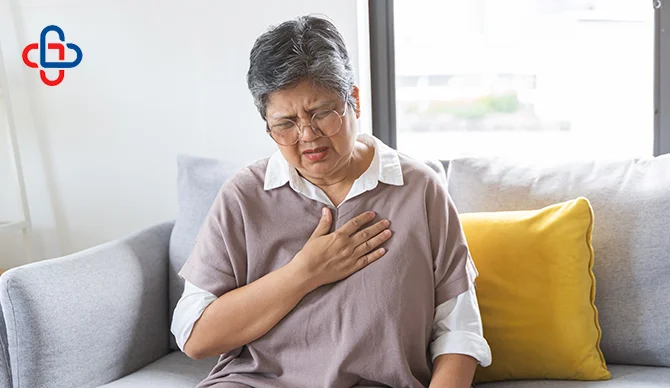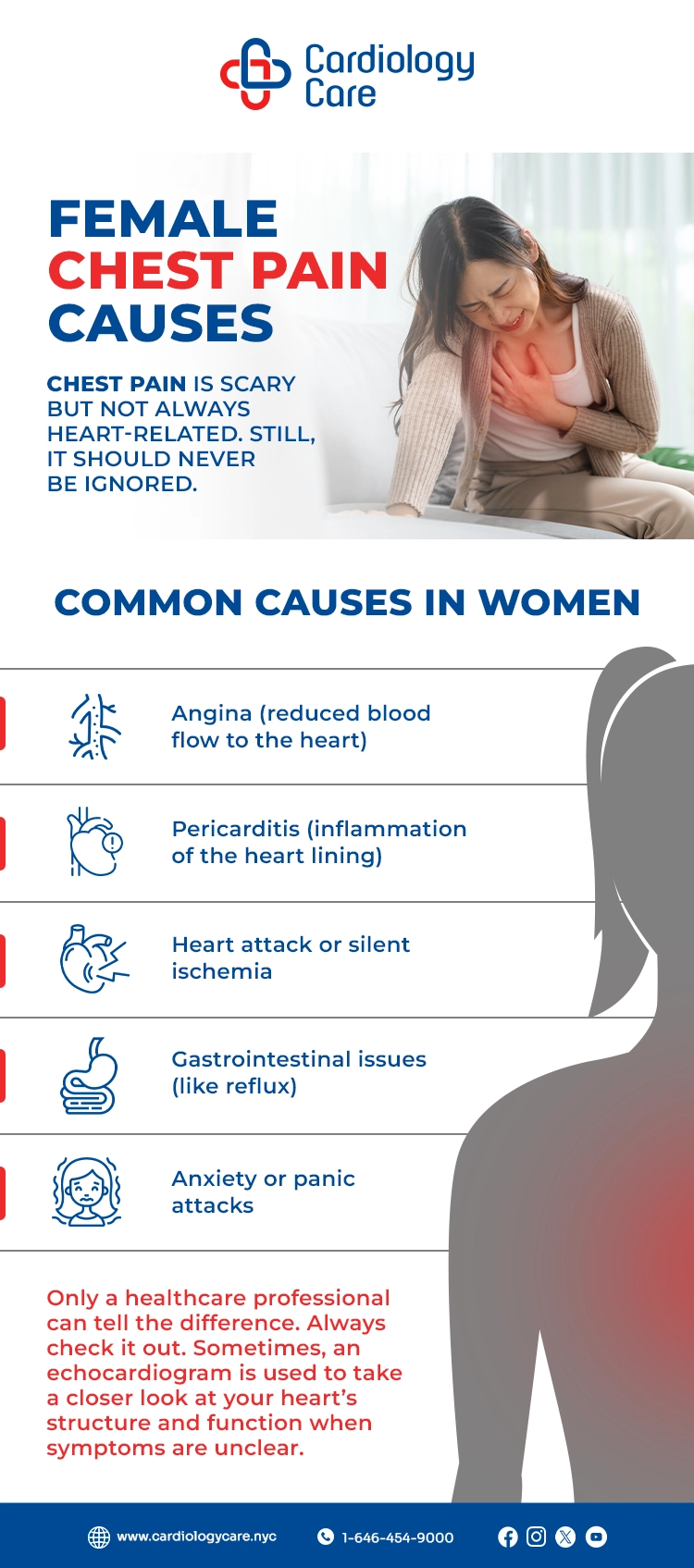It’s easy to chalk up fatigue or jaw pain to stress, but for women, these could be warning signs of something much more serious. Heart disease remains the #1 cause of death for women worldwide, and that’s why regular heart health screening is so important, especially if you’re experiencing subtle warning signs. Unlike the dramatic “chest clutch” heart attacks we see on TV, women’s symptoms can be subtle, vague, and easily mistaken for anxiety, the flu, or simple exhaustion.
Table of contents
Why Heart Disease in Women Is Often Missed
Let’s be real—women’s bodies aren’t carbon copies of men’s. Hormones, anatomy, and even blood vessels behave differently. That means the red flags for heart disease in women can show up in unexpected ways.
Here’s why it matters:
- Women often report non-classic symptoms, like jaw or back pain, rather than chest pain.
- Estrogen levels and smaller arteries in women can affect how blockages form.
- Many symptoms are brushed off as stress, aging, or hormonal changes—which delays care.
Key Heart Disease Symptoms in Women
Not all heart issues come with intense chest pain. In fact, many women experience symptoms that are easy to overlook.
Common signs include:
- Chest discomfort (tightness, pressure, squeezing)
- Shortness of breath at rest or with light activity
- Extreme fatigue that feels out of proportion to your activity
- Pain in the jaw, neck, shoulders, or upper back
- Nausea, indigestion, or feeling lightheaded
- Heart palpitations or a fluttering heartbeat
- Swelling in legs, ankles, or abdomen (a possible heart failure symptom)
- Facial swelling or bluish tint (possible sign of advanced heart failure)
These symptoms may come and go, or show up gradually over time. In many cases, doctors may recommend cardiac tests to pinpoint the cause and guide treatment.
Heart Attack Symptoms in Women: What to Watch For
Yes, women get heart attacks—but they don’t always feel the same as they do in men.
Watch out for:
- Silent heart attacks (no obvious chest pain)
- Sudden shortness of breath or fatigue
- Cold sweats, dizziness, or fainting
- Persistent nausea or stomach pain
Many women describe having symptoms days or even weeks before the actual heart attack. An electrocardiogram (ECG) is often one of the first tools used to assess heart rhythm abnormalities in such cases. Listening to your body is key.
Female Chest Pain Causes
Chest pain is scary—but not always heart-related. Still, it should never be ignored.
Common causes in women:
- Angina (reduced blood flow to the heart)
- Pericarditis (inflammation of the heart lining)
- Heart attack or silent ischemia
- Gastrointestinal issues (like reflux)
- Anxiety or panic attacks
Only a healthcare professional can tell the difference. Always check it out. Sometimes, an echocardiogram is used to take a closer look at your heart’s structure and function when symptoms are unclear.
When to See a Cardiologist
Knowing when to act is just as important as recognizing the symptoms. At Cardiology Care NYC, we specialize in helping women recognize and manage heart conditions before they become emergencies. Whether it’s through a routine stress test or follow-up care, we tailor our approach to your needs.
Get medical help right away if you experience:
- Sudden, unexplained fatigue
- Shortness of breath doing normal activities
- Recurring chest pressure or irregular heartbeat
A cardiology consultation is essential for:
- Women with a family history of heart disease
- Those with diabetes, high blood pressure, or high cholesterol
- Anyone recovering from a suspected or confirmed heart issue
Conclusion
Heart disease in women can show up subtly—fatigue, breathlessness, or neck pain may be signs. Early recognition is critical. If you’re concerned, trust your gut. Contact Cardiology Care NYC for expert support and testing like a holter monitor when needed.
Frequently Asked Questions
Why does my chest hurt when I lay down?
Chest pain while lying down can be caused by acid reflux, pericarditis (inflammation around the heart), or musculoskeletal strain. If it persists, get it checked to rule out heart-related causes.
Can lack of sleep cause heart palpitations?
Yes. Poor sleep disrupts the nervous system and stress hormones, which can trigger irregular heartbeats or palpitations.
Can stress trigger heart issues in women?
Yes, intense emotional stress can lead to heart problems like stress cardiomyopathy.
Does menopause raise heart risk?
Yes, lower estrogen post-menopause increases heart disease risk.
Do autoimmune diseases affect heart health?
Yes, conditions like lupus raise heart disease risk due to inflammation.
Disclaimer
This blog is for informational & educational purposes only and does not intend to substitute any professional medical advice or consultation. For any health-related concerns, please consult with your physician, or call 911.

